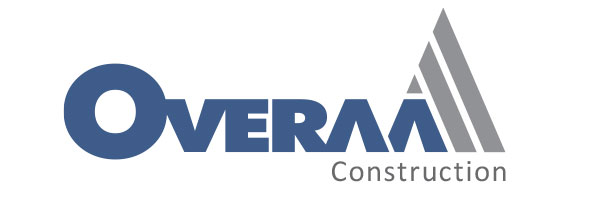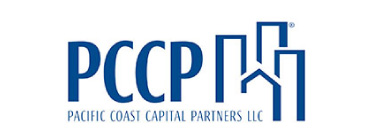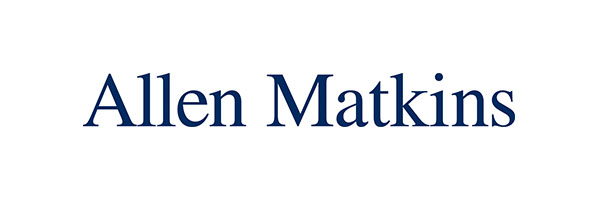CBPA’s California Legislative Update 4/26/19

- HOUSING -- AB 36 PULLED, AB 1482 HEADED TO APPROPRIATIONS
- PROP. 13 GUTTED BY SCA 5
- AB 142 – LACTATION ROOMS PASSES THIRD POLICY COMMITTEE
- FOUR MORE JOB KILLERS NAMED
- CBPA 2019 CALENDAR
HOUSING -- AB 36 PULLED, AB 1482 HEADED TO APPROPRIATIONS
As the Legislature tries to continue to solve the housing crisis in California, we continue to oppose these methods in which they believe to be the answer to our problems. With hundreds of people lined up throughout the hallways of the Capitol for this committee hearing, these contentious bills are somewhat of a controversial topic for legislators and non-legislators alike.
Slightly calming the storm that was the inside of the Capitol yesterday, AB 36, part of the “Renter Protection Package”, was pulled by the author Assemblymember Richard Bloom (D) before it was heard in committee Thursday, March 25. AB 36 would have allowed cities to expand rent control to single family homes and properties built after 1995.
On the contrary, AB 1482 by Assemblymember Chui (D) got out of the Assembly Housing and Community Development Committee on a 6-1 vote. With inspiration coming from Oregon, this bill was introduced with the intention to ban “rent-gouging” by capping the amount that landlords could raise the rent year over year at 5% plus inflation. AB 1482 is now headed to the Committee on Appropriations, and we will keep you updated with our fight against this bill as it moves through the legislature.
PROP. 13 GUTTED BY SCA 5
We strongly Oppose SCA 5, a bill which would allow school districts to increase property taxes with a 55 percent approval of the voters participating in the election – instead of a two-thirds vote of the district’s electorate as currently required under the State Constitution – if the proposition is approved by the school governing board and includes certain requirements, as specified. The measure also would facilitate various local tax increases by lowering the minimum voter approval to a percentage of the voters participating in the election instead of the district’s qualified voting electorate.
This bill would gut Prop 13 by removing the longstanding protections of that landmark measure that requires a 2/3 vote to increase property taxes for certain activities. Coupled with local measures like EE in Los Angeles and statewide measures like the Split Roll ballot measure on next November’s ballot, we are seeing one of the most brazen and coordinated attempts to raise your property taxes that we have ever seen.
Don’t let this happen. Contact us now to find out how you can help push back all these threats.
AB 142 – LACTATION ROOMS PASSES THIRD POLICY COMMITTEE
Once again, we are dealing with a bill in the legislature that mandates expanded access to Lactation Rooms in commercial buildings. The bill, AB 142 by Senator Weiner from San Francisco, is very similar to a bill he carried last year that was vetoed by Governor Brown.
The bill had an unusual “Triple Referral,” meaning it was heard by three different policy committees. It passed all three mainly on party line votes with several votes to spare.
As an industry our main concerns with the bill is that it brings building owners and managers into the middle of an employer-employee relationship in which we do not belong.
Even after significant conversations with the author the building code provisions remain in the bill and these provisions put multi-tenant and industrial buildings at a sever disadvantage in terms of compliance as the bill is very owner-occupied-centric in that the policy does not take into consideration the complicated nature of leasing. The issues we have mainly occur with multi-tenant situations where responsibility for tenant improvements may be 100% on the owner, 100% on the tenant, or some combination thereof, but as the bill is written it ignores how leases are written and agreed upon.
Also, this bill assumes that all real estate markets across the state are the same – akin to those in coastal cities – and will be much more difficult to comply with in areas where tenants have less capital to work with.
Over the past week we have been working with our legislative committee, the author, and his staff to identify our specific issues and try to resolve them. Here they are, and you are encouraged to share this information with local legislators:
ISSUE 1. The entity responsible for making modifications should be who is responsible for providing the space (it is common for tenants to control their own space). This is how it is in S.F.’s ordinance.
SOLUTION: Clarify the entity triggering the law is the responsible party for the accommodation (that may be a building owner, manager, or tenant).
ISSUE 2. Currently the bill triggers a Tenant Improvements in spaces that not part of the qualifying event. An improvement in one tenant’s Premises should not trigger requirements in other Premises in building/center. Shifts cost and/or requires use of common space that may not exist.
SOLUTION: Clarify this only trigger for the space triggering the law.
ISSUE 3. If no reasonable space within Premises and no need to provide space elsewhere in building/center if no room in Premises. This commonly occurs in an industrial campus setting where each company has its individual space. SOLUTION: Provide an exemption for properties that do not have common space/office space.
ISSUE 4. Number of employees at one location instead of companywide. Bill currently could trigger based on company employees not the actual number on site.
SOLUTION: Clarify occupancy load pertains to the onsite employees only.
ISSUE 5. Technical issue. “Daily occupancy” language is not a common term used in law. There are fire marshal standards for max occupancy but there are not statewide standards for occupancy load.
SOLUTION: Work with the Local Building Officials Association to determine now local building officials would determine how many employees will be on premises daily.
ISSUE 6. Technical/Governance issue. We think the building code references are unneeded. The provision of lactation accommodation is a “service” as opposed to a physical occupancy. Meaning that the “service accommodation” will be triggered at some point post-initial construction and will be dependent on the staffing needs of individual tenants in the building. So, the appropriate response to this will be the provision of lactation accommodation by the employer (as opposed to the building owner).
SOLUTION: Strike the building code references and provide direction through the Labor Code and or to local government inspectors.
We are suggesting a simpler way to write the bill would be to take the Labor Code provisions in current law and just require as part of that accommodation the table, chair, refrigerator, etc. be available. We will keep you posted.
FOUR MORE JOB KILLERS NAMED
Four more bad bad bills have been named to the CalChamber Job Killer list, which brings the total number of the worst-of-the-worst bills that would negatively impact business up to 28 bills. The new additions to the list are:
AB 345 (Muratsuchi; D-Torrance) Would eliminate thousands of high paying California jobs and require California to import even more foreign oil by banning new oil and gas development, re-drilling operations, and rework operations if they are located within 2,500 feet of specified structures and facilities and authorizes local governments to enact even farther setback requirements that can exceed 2,500 feet with no limitation. Policies aimed at banning in-state natural gas and oil production will result in increased oil and gas imports, higher energy costs for residents, less tax revenue for the state, fewer in-state jobs and negative environmental and labor practices.
AB 1066 (Gonzalez; D-San Diego) Would significantly increase costs on employers engaged in a trade dispute by allowing employees on strike to receive unemployment benefits if the strike lasts more than two weeks, incentivizing strikes and transforming unemployment insurance into a political tool in trade disputes. This bill will expose employers to a significant cost increase during a time in which they are already struggling with the financial impact of labor negotiations and a strike, thereby jeopardizing the employers’ ability to maintain existing jobs and wages as well as the increased wages and benefits demanded by the union.
SB 37 (Skinner; D-Berkeley) Proposes one of the steepest corporate tax increases ever contemplated in California. The bill requires that for taxable years beginning on or after January 1, 2020, the rate for corporations with net income of $10 million or more be revised to instead impose a tax rate from 10.84% to 14.84%, or for financial institutions, from 12.84% to 16.84%, based on the compensation ratio of CEOs to employees of the corporation. This measure would bring the top tax rate for some companies to 22.26%, about 150% higher than today’s rate. The bill goes beyond what was contemplated in last year’s SB 1398 (Skinner), also tagged a Job Killer, which failed to pass out of the Senate policy committee.
SB 320 (Jackson; D-Santa Barbara) Exposes businesses to costly litigation for a consumer’s assertion that any price difference on “substantially similar” goods, even a nominal amount, is based on gender and therefore the consumer is entitled to a minimum of $4,000. Although a business may very well be able to prove the price charged for a particular product was based on a gender-neutral reason, the cost of litigation to prove that defense would be significant.
CBPA 2019 CALENDAR
June 11 – 12, 2019
California Commercial Real Estate Summit
Sacramento
December 5 – 6, 2019
Strategic Issues Conference
Napa Valley








































